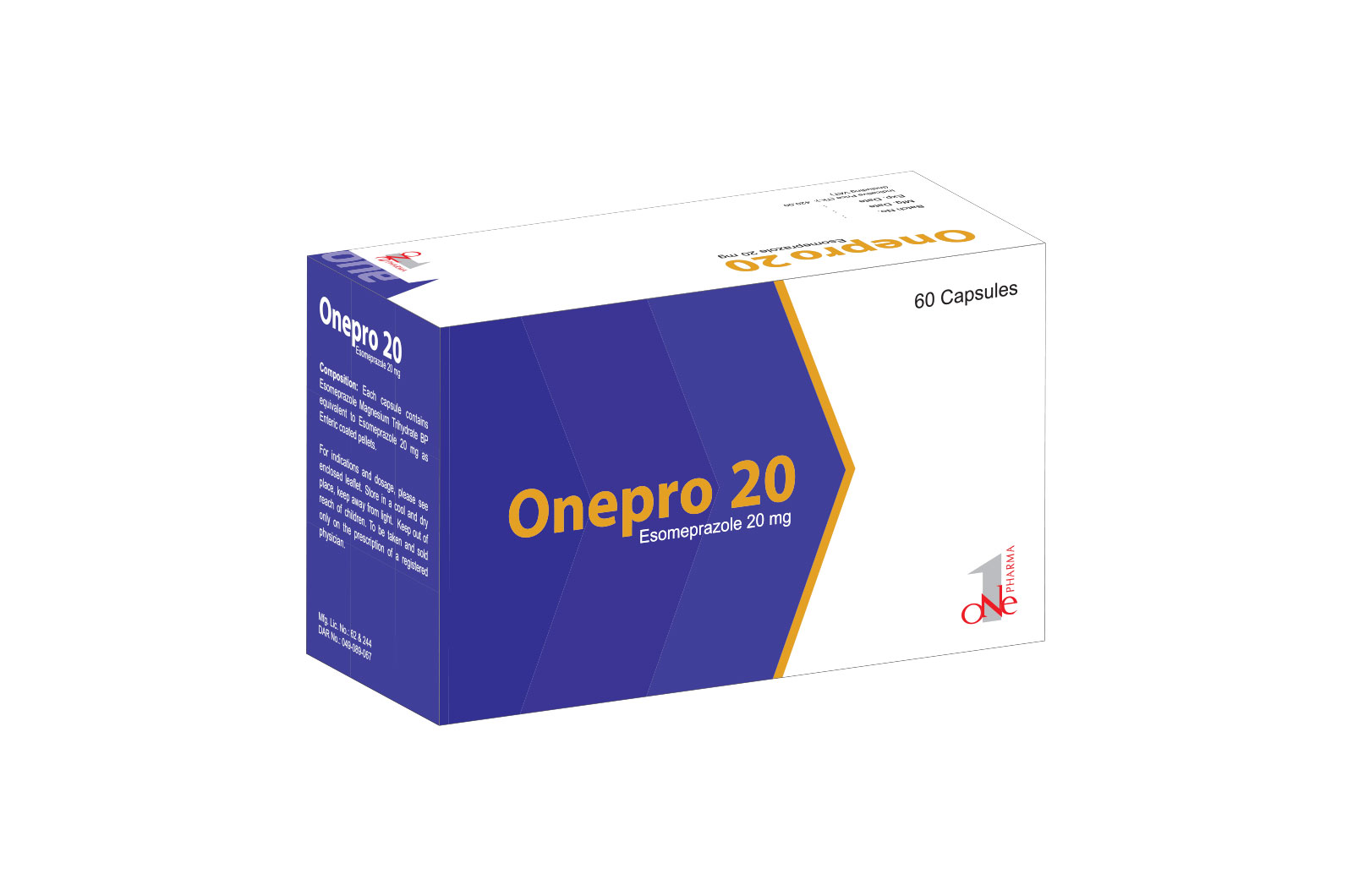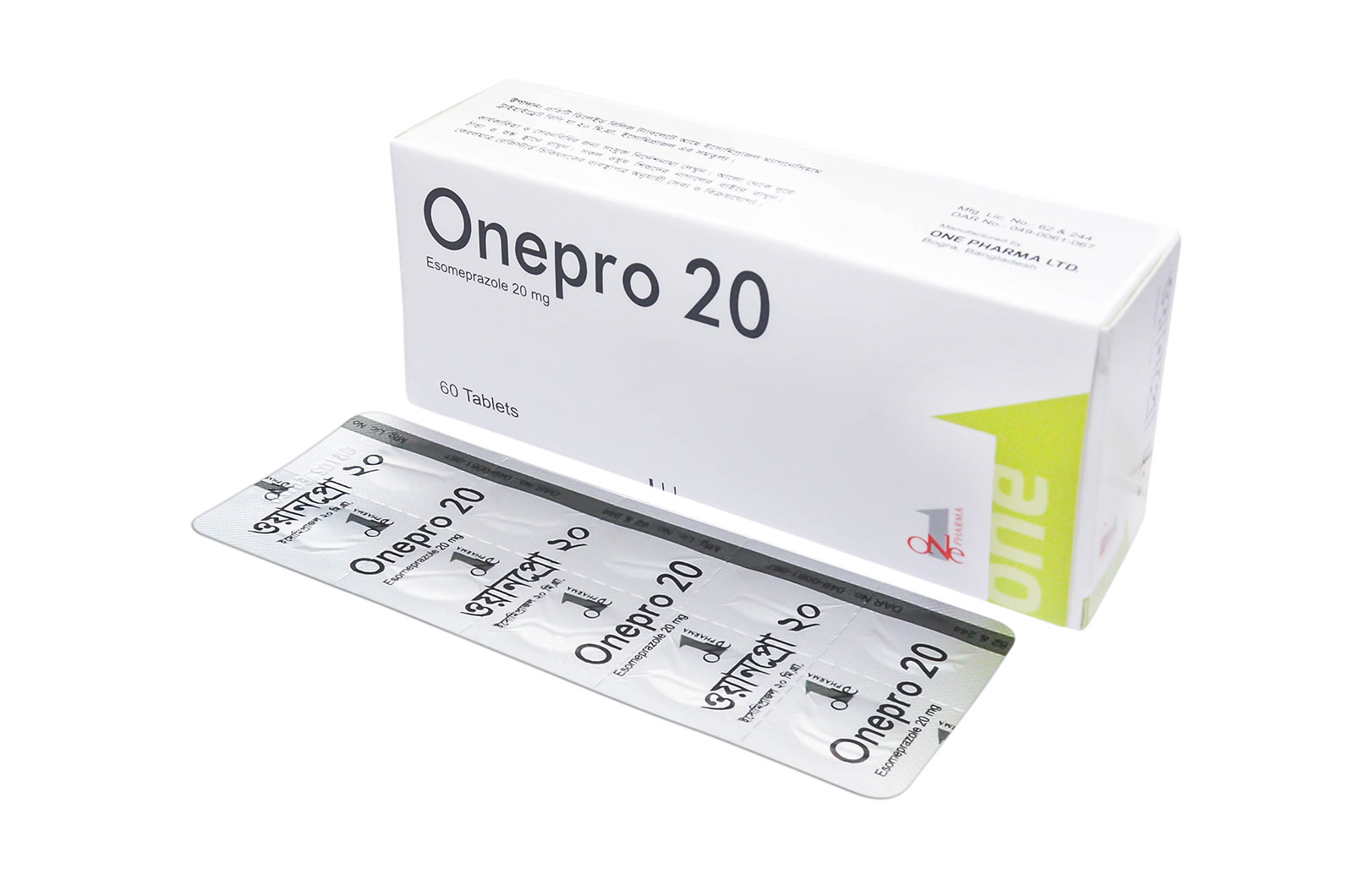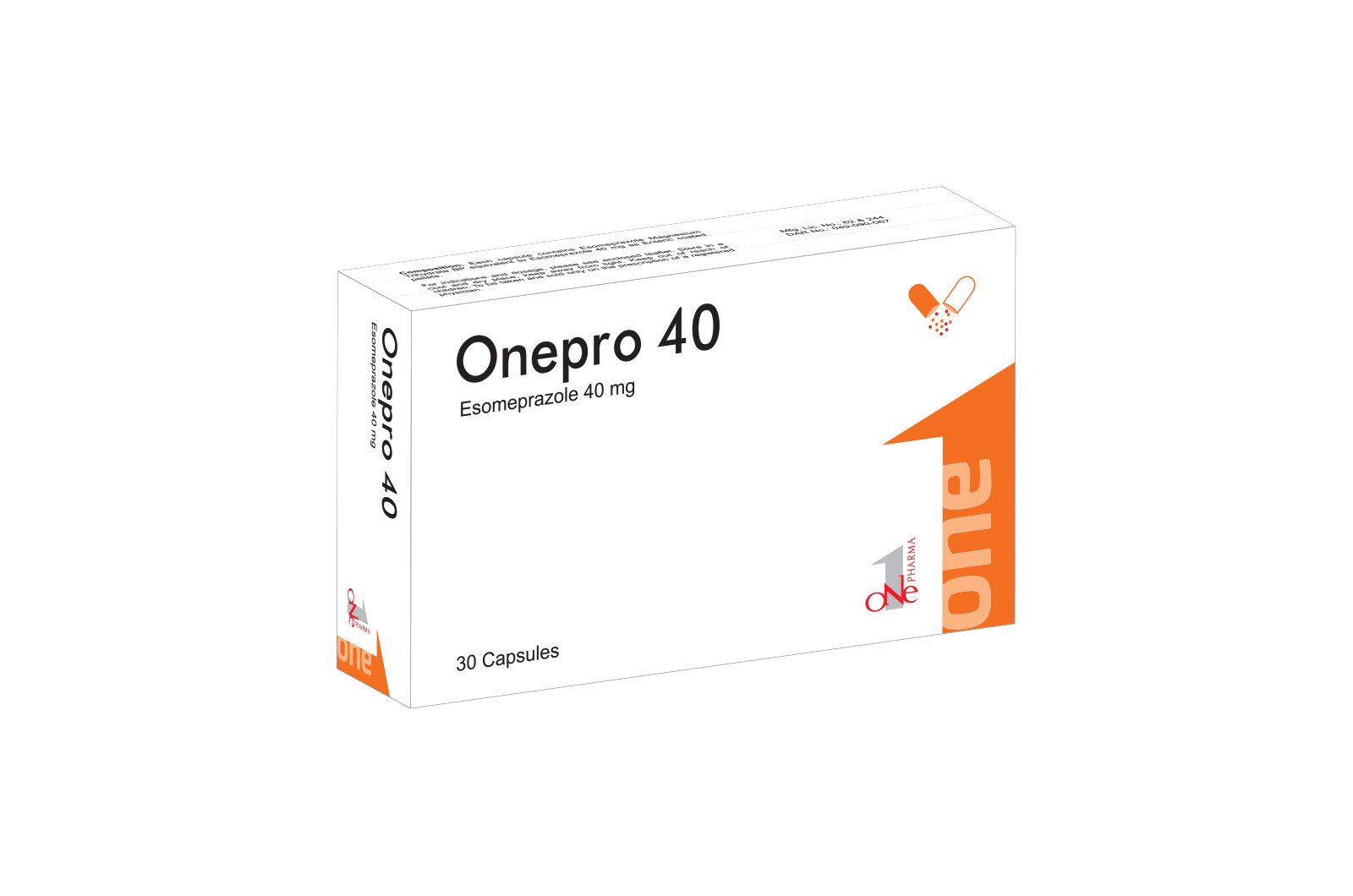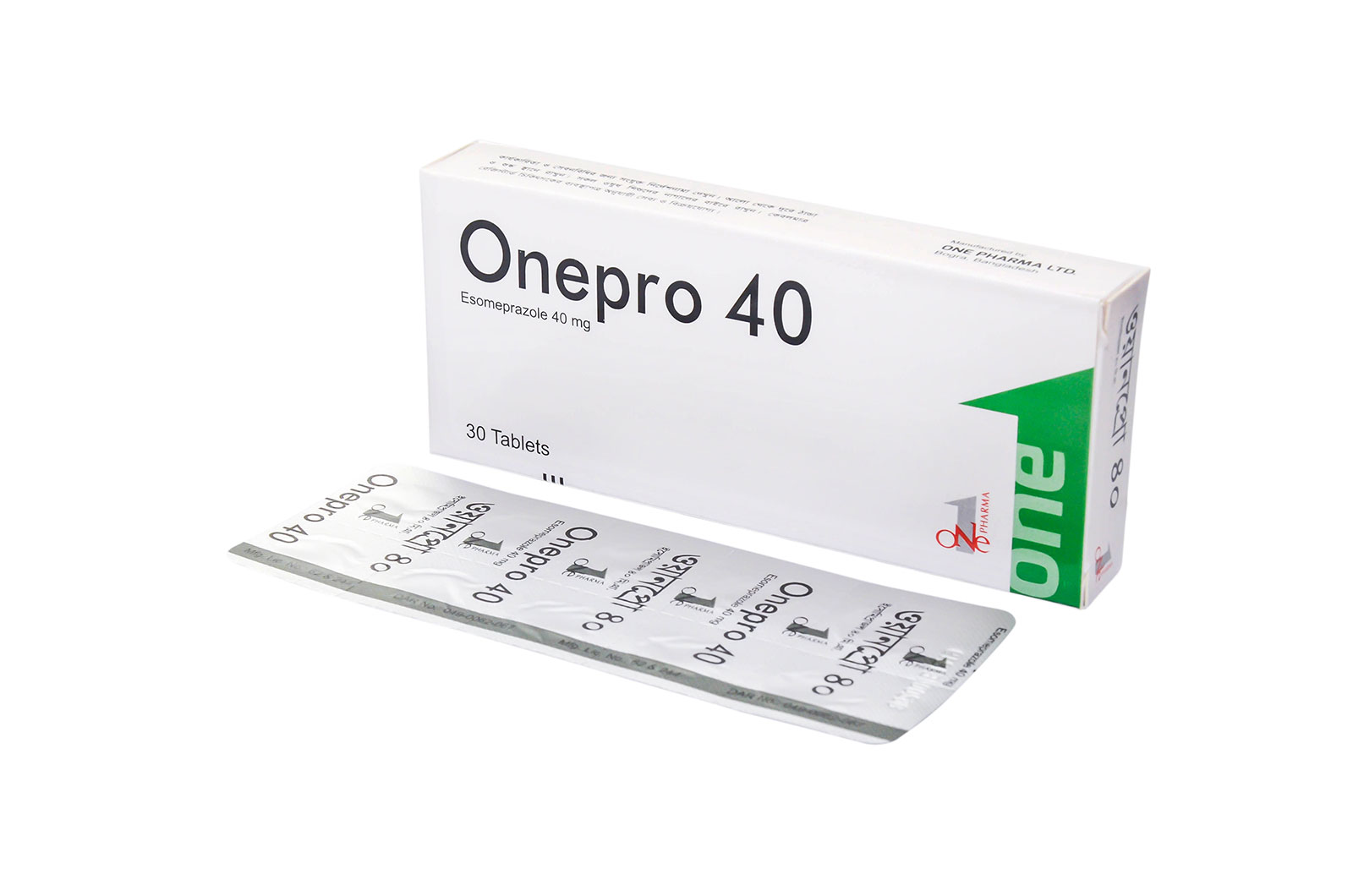









Esomeprazole (Onepro) is a proton pump inhibitor that suppresses gastric acid secretion by specific inhibition of the H /K ATPase in the gastric parietal cell. By acting specifically on the proton pump, Onepro blocks the final step in acid production, thus reducing gastric acidity.
Indications and Usage
-Healing of Erosive Esophagitis
-Maintenance of Healing of Erosive Esophagitis
-Symptomatic Gastroesophageal Reflux Disease